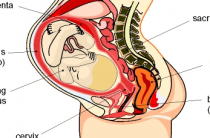When an allergy occurs in a pregnant woman, this means that certain risks are present not only for maternal health, but also for the child's body. Pregnancy itself, due to the fact that significant changes take place in a woman's body, can serve as a trigger for allergic reactions. In this case, there is an extremely high risk of the formation and manifestation of an allergic reaction, which turns into an acute course and represents a high degree of potential threat to health, as well as the development of the fetus and the normal course of pregnancy.
If a woman suffers from allergies, then even before planning a child, it is necessary to clarify the following points:
- An allergen or group of allergens that provoke an allergic reaction;
- Features of the symptoms of an allergic disease;
- Under what conditions there is an increase and weakening of symptoms;
- Which therapy had the best effect?
This information will greatly help the doctor in prescribing appropriate therapeutic measures that are safe for the unborn child and his mother.
However, it should be borne in mind that pregnancy involves significant changes in the health of the mother. Often, the course of an allergic disease during pregnancy can change as follows:
- During pregnancy, allergies will proceed in the usual way;
- Allergy symptoms will subside during pregnancy;
- Pregnancy will lead to the development of an allergic disease;
- During pregnancy, the list of allergens will expand.
Each of these options is not unambiguous and it is impossible to accurately predict the development of allergies in each specific case.
How is allergy expressed during pregnancy
- Skin manifestations, which are characterized by: itching, burning and peeling of the skin, redness, ulceration, dryness of the skin;
- Burning in the nose, swelling of the nasopharynx, causing difficulty in nasal breathing; tearing, secretion of transparent contents;
- Increase in body temperature;
- Asthmatic symptoms;
- Increased weakness and fatigue, nausea and dizziness
Acute forms of allergic reactions
Acute forms are called extensive manifestations of allergic reactions that affect numerous organs and tissues of our body and are potentially dangerous conditions that, without proper emergency treatment, can be fatal.
Among these conditions are: anaphylactic shock, generalized urticaria and Quincke's edema.
Anaphylactic shock is a state of the body's immune response to an allergen, which is characterized by extensive swelling of soft tissues, with developed subcutaneous tissue. The following manifestations of anaphylactic shock are the most dangerous: a rapid decrease in blood pressure, laryngeal edema, contraction of the muscles of the larynx, and bronchospasm. Drugs used to treat anaphylactic shock include intravenous adrenaline solution; corticosteroids; antihistamines.
Anaphylactic shock most often occurs after insect bites. In this case, it is also necessary to apply a tourniquet or other bandage around the bite site in order to prevent the spread of the allergen or at least slow down its flow.
Anaphylactic shock is dangerous because in patients with a high degree of immune sensitivity, it can develop even with minimal contact with allergens. Therefore, during pregnancy, it is important to pay close attention to the prevention of allergic diseases, based on preventing contact with the allergen.
For allergic symptoms during pregnancy, its unpredictable development is characteristic. So, the manifestation of symptomatic groups that are not characteristic of the usual course of allergic reactions is possible. Symptoms can sharply worsen and immediately disappear. In a word, it is simply impossible to predict the course of allergic symptoms during pregnancy. This is due to the fact that the immune system of a pregnant woman is experiencing a significant overload, and even in healthy people it is able to react inadequately, which can also provoke allergies.
What threatens the child, mother's allergy
And so, the first thing that should get into your focus is the possibility of transmitting allergies by inheritance. This remark is not an absolute rule. There are cases when a man and a woman who suffer from allergic diseases have a completely healthy child. But still, if one of the parents of the family, or relatives have an allergy, then special attention must be paid to the prevention of this disease in a child.
It is not sensitivity to certain allergens that is inherited, but only violations of the immune system, in which allergic reactions develop. Thus, the mother of the child may be allergic to dust, while the child himself may be allergic to food. It also does not transmit symptoms, which are individual for each person and can vary significantly between mother and child.
The manifestation of allergies during pregnancy must necessarily be amenable to therapeutic effects, since allergens cause changes in the immune system, which in one way or another affects the child. But it is worth noting that allergy treatment tactics must be competent, since many drugs that are well tolerated by the body can affect the fetus.
The negative impact of drugs
Teratogenic activity is the ability of the active substances of the drug to cause disturbances in the development of the fetus. There is also an immediate danger to the life of the child in the mother's womb.
Depending on the teratogenic effect, drugs can be classified as follows:
- Drugs that showed no effect on the fetus, both during the experimental activities aimed at research, and during the collection of statistics on the practice of use among pregnant women. We draw your attention to the fact that such drugs are still classified as drugs with no detected teratogenic activity, since in any case, the possibility of such an effect is not completely excluded;
- Drugs that, during the experiments, did not show an effect on the fetus, but for which there are no data regarding practical use;
- Drugs that have shown a negative effect on the fetus during a medical experiment, but there are no practical data on this issue yet;
- Drugs that, despite a pronounced and proven effect on the fetus, are intended for the treatment of such conditions in which the absence of their use carries a more pronounced danger to the mother and child;
- Drugs that are unacceptable for the treatment of a pregnant woman
When breastfeeding, it is necessary to take into account the ability of the active substances of the drug to seep into breast milk. During feeding, such drugs are replaced with similar ones that do not penetrate into breast milk, or feeding is stopped. It is also worth considering the ability of the active substance to accumulate in tissues, which is important when planning pregnancy.
Diagnosis of allergies during pregnancy
Many effective diagnostic measures that are based on the patient's contact with the allergen, followed by monitoring the results. These methods include: skin tests and provocative tests. During pregnancy, these diagnostic measures are not carried out, in order to avoid unwanted complications from contact with allergens.
The main diagnostic measure is a blood test for the presence of antibodies. The essence of this method is to diagnose the level of general antibodies and the presence of special ones. Antibodies are special proteins related to the mechanism of the immune system, which, when combined with an allergen, trigger a cascade of allergic reactions. By the presence of special antibodies, during the allergen ingestion, one can judge the presence and extent of an allergic disease.
A blood test for antibodies does not require interruption of symptomatic therapy, unlike skin and provocative tests. However, during this diagnostic event, certain guidelines must be followed before blood sampling in order to avoid distorting the results of the analysis. The laboratory staff will acquaint you with them before passing the analysis.
If you suspect that you have allergies, it is advisable to diagnose its nature before pregnancy. This is due to the fact that many high-precision procedures for diagnosing the body's response to allergens are unacceptable during pregnancy. Familiarization with the exact cause of the allergic reaction will allow you to dispose of the most effective method of confronting allergies - eliminating contact with the allergen, which at the same time is 100% safe.
General blood analysis.
In addition to general characteristics, in this analysis we are interested in one specific phenomenon for allergies. Eosinophils are cells in our body that are integral components of the immune system and produce antibodies. Often, allergic reactions occur with an increase in the level of eosinophils.
Allergy therapy during pregnancy
Therapeutic measures for allergies during pregnancy occur under the supervision of several doctors. Firstly, this is an obstetrician-gynecologist who leads your pregnancy, and secondly, an allergist who is also familiar with therapeutic tactics in relation to patients with allergic immune disorders during pregnancy.
Self-medication is an activity that often has a negative effect on health. This danger increases many times during pregnancy. Many drugs that are well tolerated by a person in the normal state can have an adverse effect on the formation of the fetus and disrupt the natural course of pregnancy.
In the case when taking allergy medications for systematic treatment is necessary for health reasons, the attending physician selects the optimal treatment tactics in terms of effect-safety ratio. In no case do not self-medicate symptomatic during pregnancy, even if you have not experienced side effects from taking medications before.
What can be done for allergies during pregnancy
And so, if the treatment of allergies is the work of specialists, then everyone can independently improve their health and avoid the development of unpleasant complications, for this it is necessary to strictly follow a few simple rules:
- At the stage of pregnancy planning, establish the exact nature of the allergic reaction and distance yourself as much as possible from the source of the allergy;
- If you suffer from an allergic reaction to dust or plant pollen, then take the appropriate measures: clean the room with a wet method as often as possible; install air conditioners, as well as air purifiers, do not walk in the morning and afternoon, in dry weather and with wind;
- Do not eat foods that you are trying for the first time. Perhaps you have an allergic predisposition to these components;
- Before planning pregnancy, it is necessary to carry out special immunotherapy, which is based on the systematic introduction of minimal doses of the allergen into the body, as a result of which the body's sensitivity to this allergen disappears;
- Also, before planning pregnancy, it is necessary to strengthen the immune system with dosed physical activity and hardening, which will help normalize its work;
- Do not eat foods that increase allergy symptoms (chocolate, cocoa, milk, tomatoes, strawberries, red and black currants, seafood, hard cheeses). But at the same time, during pregnancy, carefully monitor and without fail replace with non-allergenic products that are not inferior to them in biological value.
- Do not use medicines unless strictly necessary, as they are potential allergens, during pregnancy. The use of medicines should be under the strict supervision of your physician and only when clearly needed;
- If during the course of pregnancy you encounter allergic-like symptoms, regardless of its severity, consult a doctor immediately;
- During pregnancy, reduce the use of cosmetics and household chemicals that contain substances that provoke the skin and respiratory system. So, toilet soap, washing powder and shampoo can be successfully replaced with household soap, and detergent with mustard powder;
- Pay close attention to a hypoallergenic diet during pregnancy, as well as for a mother who is breastfeeding;
- In order to prevent allergies in a child, it is necessary to gradually introduce normal food into the baby's diet;
- It is also necessary, if possible, to provide the entire cycle of breastfeeding with mother's milk, which is necessary for the formation of a healthy immune system of the baby, which will not be prone to allergic reactions;
- Do not expose your skin to direct contact with sunlight, as well as exposure to cold;
- Avoid places with stinging insects (bees, hornets, wasps, ants, etc.)
















A good alternative to antihistamines was a visit to the salt cave. I went to the Halocenter for 10 sessions. An immunologist sent me. And it really became much easier to endure allergy symptoms. Breathing became better. Thanks to the breath of natural salt, the lungs develop well, the glands that provoke symptoms calm down.